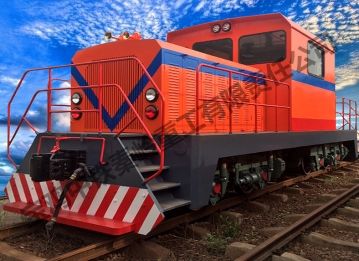It is well known that China's railway development is very rapid, especially China's high-speed railway, which ranks among China's four new inventions, has become the first name card of China's industry. China's high-speed rail laying mileage, technical content, are leading the world's countries may be said to be superior. But do frequent train riders notice? In addition to high-speed trains, there are many other trains running in China, such as those powered by electric locomotives and even those powered by internal combustion engines.
So the question is, since high-speed rail is so developed, do we need other trains in our country? Especially the internal combustion engine vehicles use non-renewable energy, whether the future will gradually withdraw from the stage of history? Let me give you a little bit of common sense here.

What we usually say about trains is a very big concept, but in fact, our trains in China are divided into four categories according to the production organization: locomotives, passenger cars, trucks and bullet trains. The locomotive is what we usually call locomotive, and divided into electric locomotive and diesel locomotive, China's largest production of electric locomotive enterprises, is in the car zhuzhou electric locomotive co., LTD., the largest production of diesel locomotive enterprises is in the car qishuyan locomotive co., LTD.; CRRC dalian locomotive and rolling stock co., LTD is the production of these two models.
As we all know, the bullet train and high speed railway we usually ride are all powered by each car, while the locomotive is different. The train runs fast by the front of the belt, refers to the locomotive. With locomotives to provide power, passenger cars or freight cars can be attached to the rear. By the way, we saw in the news a few days ago that CRRC qiche group, located in qiqihar, heilongjiang province, is the world's largest railway truck production and export enterprise.
We know electric locomotive and diesel locomotive, the biggest difference is the power source is different. Electric locomotives use electricity while diesel is used for diesel locomotives. At present, China has a total of about 21,000 locomotives, among which the diesel locomotive accounts for about 40%. So why do we have to guarantee the number of diesel locomotives when the world is advocating the use of new energy, that is, renewable energy? First of all, from the perspective of economy, the cost of electrified railway laying is much higher than that of diesel locomotive laying.
In many parts of our country is in a state of sparsely populated, with the view point of construction cost, the electric circuit is not cost-effective, such as called pilgrims, along the qinghai-tibet railway from golmud to Lhasa interval, is completed by harmony within 5 type internal combustion engine car passenger transport task, another example of shenhua coal lanes, and basically is to use diesel locomotive.
Also keep diesel locomotive has a very important reason, is the strategic reserves, it is good to electric vehicles, but easy to damage, repair and laborious, once the circuit damage or damage to the transformer substation must shut down the whole line, and as long as the railway diesel locomotive is good to use, 08 snowstorm electrified lines affected, when all the power train can't run, when the internal combustion engine vehicle mobility, and emergency ability.
In the same way, if the war came and the railways were to play the most important role in inland material transportation, the strategic position of the diesel locomotive would be even more important if the power lines were damaged. So any big country will keep the number of diesel cars, just in case, prepare for war for the people.
In recent years, with the continuous improvement of China's industrial level, the level of our national internal combustion engine production enterprises, also reached the world-class level, which to China railway qishuyan locomotive co., LTD., China railway dalian locomotive and rolling stock co., ltd. as the outstanding representative. In addition to seeing the star-studded high-speed railway, we should also express our deep respect to other comrades who are struggling in China's railway industry.
